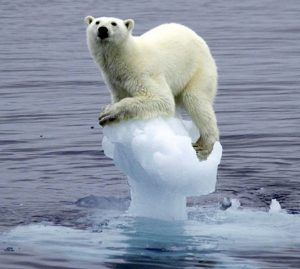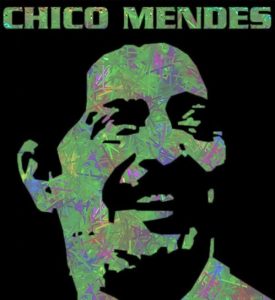About Child of the Future
“People forget that we are only guests on this earth, that we come onto it naked and depart with empty hands” – Esma Redžepova, Gypsy singer
 Child of the Future is a musical play about the environment that was written in 1991 by Rilla Paterson. It was inspired by the book "Where On Earth Are We Going?" by Jonathon Porritt, and intended as a teaching aid for junior children, because they will remember a song much better than what is written in a book. It draws attention the the plight of the Earth and provides an opportunity for children aged 8 to 13 years to gain some knowledge of what could be done to secure a future for them and for their children.
Child of the Future is a musical play about the environment that was written in 1991 by Rilla Paterson. It was inspired by the book "Where On Earth Are We Going?" by Jonathon Porritt, and intended as a teaching aid for junior children, because they will remember a song much better than what is written in a book. It draws attention the the plight of the Earth and provides an opportunity for children aged 8 to 13 years to gain some knowledge of what could be done to secure a future for them and for their children.
 At that time, concern about the environment was not so far advanced as it is today, and some aspects have been alleviated by recent developments: the use of CFCs in refrigeration has now largely been abandoned, which has had some effect in slowing the destruction of the ozone layer; the introduction of managed forests is now much more widespread; the expansion of recycling initiatives, the development of renewable energy supplies and the control of fossil fuel emissions have all been considerable; the take-up of electric cars has been so rapid as to overtake the provision of the associated infrastructure that will be required; plastics, once regarded as the industry standard for manufactured goods, have suddenly become less acceptable as “whole of life” criteria become a major factor in the field of marketing, resulting in a vastly increased focus on sustainability.
At that time, concern about the environment was not so far advanced as it is today, and some aspects have been alleviated by recent developments: the use of CFCs in refrigeration has now largely been abandoned, which has had some effect in slowing the destruction of the ozone layer; the introduction of managed forests is now much more widespread; the expansion of recycling initiatives, the development of renewable energy supplies and the control of fossil fuel emissions have all been considerable; the take-up of electric cars has been so rapid as to overtake the provision of the associated infrastructure that will be required; plastics, once regarded as the industry standard for manufactured goods, have suddenly become less acceptable as “whole of life” criteria become a major factor in the field of marketing, resulting in a vastly increased focus on sustainability.
 However, progress has been very slow: deforestation, loss of species, desertification, arms spending and international debt continue at a disturbing pace, and the contribution of fossil fuels to global warming has resulted in catastrophic levels of climate change. Much of the original play, and all the songs, are still as relevant today as they ever were, perhaps even more so.
However, progress has been very slow: deforestation, loss of species, desertification, arms spending and international debt continue at a disturbing pace, and the contribution of fossil fuels to global warming has resulted in catastrophic levels of climate change. Much of the original play, and all the songs, are still as relevant today as they ever were, perhaps even more so.
The script supplied with this website remains untouched; the degree to which the ideas it introduces has changed in the last 30 years is itself a subject for debate in the classroom, and it is for teachers to use or edit as they wish.
 Dalai Lama XIV said: “We are visitors on this planet. We are here for one hundred years at the very most. During that period we must try to do something good, something useful, with our lives…” His hundred years didn’t refer to the whole of the human race, but he might be right.
Dalai Lama XIV said: “We are visitors on this planet. We are here for one hundred years at the very most. During that period we must try to do something good, something useful, with our lives…” His hundred years didn’t refer to the whole of the human race, but he might be right.
 Although the musical is intended to be fun for children to sing and perform, these are serious issues, and the plight of the Amazonian Rainforest is illustrated by reference to the Brazilian rubber-tapper, Chico Mendes, who formed a union to try to protect the forest from being cleared for cattle farming. He was shot in the doorway of his house in December 1988. This event is commemorated in the play, and in two of the songs, Chico’s Song and Remember Chico Mendes. The year 2018 will be the 30th anniversary of his death.
Although the musical is intended to be fun for children to sing and perform, these are serious issues, and the plight of the Amazonian Rainforest is illustrated by reference to the Brazilian rubber-tapper, Chico Mendes, who formed a union to try to protect the forest from being cleared for cattle farming. He was shot in the doorway of his house in December 1988. This event is commemorated in the play, and in two of the songs, Chico’s Song and Remember Chico Mendes. The year 2018 will be the 30th anniversary of his death.
“It’s always better to light a few candles than endlessly to curse the darkness”
